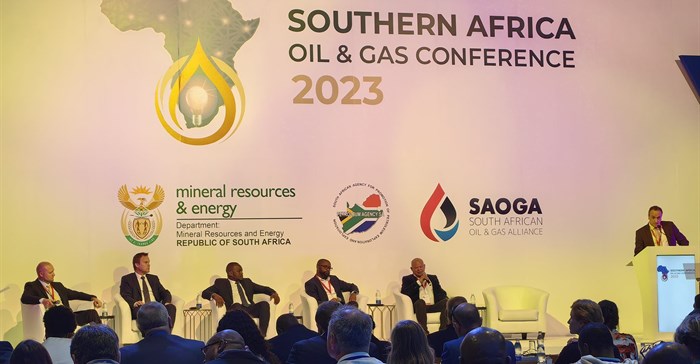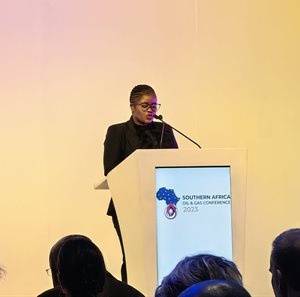
Related
Top stories



Marketing & MediaWarner Bros. was “nice to have” but not at any price, says Netflix
Karabo Ledwaba 1 day



More news

Logistics & Transport
Maersk reroutes sailings around Africa amid Red Sea constraints

















In her keynote address, Deputy Minister in the Presidency Ms Pinky Kekana called on all sectors of South Africa to work together to realise the potential of South Africa’s oil and gas sector. She encouraged South Africa to take lessons from our neighbours, Namibia, and Mozambique, which have realised substantial oil and gas investments.

“South Africa wake up. We have seen the abundance that oil and gas has brought to Mossel Bay. We have new discoveries. We need the active participation of various stakeholders, including the private sector, institutions of higher learning, TVET colleges, and local municipalities. We must work together to ensure that development benefits the communities where it takes place. Let’s build better,” she said.
Achieving this would require a coordinated approach among government departments and consistent regulations and policies that do not hinder processes.
“From the perspective of planning, monitoring, and evaluation, our government's role is to create an enabling environment for investors. We should explore ways to attract investors to manufacture locally, create jobs, and collaborate with educational institutions to address skills gaps and promote reskilling and upskilling.”
Thabang Audat, chief director planning in the DMRE presented the Gas Master Plan, which serves as a strategic roadmap for South Africa's energy future. This plan is set to guide policy decisions and advocate for an energy mix that includes natural gas as a pivotal component.
“Renewables are not enough for South Africa to meet its energy demands. Oil and gas are integral to a just energy transition in South Africa and is an important step on a proposed road to decarbonisation,” he said.
An array of speakers on day two stressed the urgency for South Africa to prioritise the exploration and production of upstream oil and gas, especially as renewables alone may not meet the country's energy demands. Oil and gas are integral to a just energy transition in South Africa. Globally, gas usage as a primary energy source is around 24%, while in South Africa, it's less than 3%.
Gas utilisation has the potential to stimulate economic growth, job creation, infrastructure rejuvenation, and lower business costs.
Reflecting on the conference Dr Tshepo Mokoka the acting CEO of PASA said: “There are many lessons from the last two days that we as the upstream oil and gas sector can take away from this conference include the need to streamline policies and regulations and remove obstacles to development."

"Our goal should be to create an enabling environment to attract investors for local manufacturing, job creation, and skill development and we must prioritise inclusive development by collaborating with stakeholders, including the private sector, educational institutions, and local municipalities to ensure that oil and gas development becomes a force for positive change in the communities where it takes place."